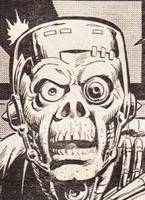- Welcome to Cook'd and Bomb'd.
-
 Cigs, Mate?
by Agent Dunham
Cigs, Mate?
by Agent Dunham
[Today at 04:50:48 PM] -
 Threelon Musk: pl3ase lik3...
by Sebastian Cobb
Threelon Musk: pl3ase lik3...
by Sebastian Cobb
[Today at 04:50:47 PM] -
 Life After Oz (the HBO prison...
by Brundle-Fly
Life After Oz (the HBO prison...
by Brundle-Fly
[Today at 04:49:34 PM] -
 Naked Gun reboot - Looks like...
by El Unicornio, mang
Naked Gun reboot - Looks like...
by El Unicornio, mang
[Today at 04:46:29 PM] -
 Richie Sunak - The Decline...
by Ferris
Richie Sunak - The Decline...
by Ferris
[Today at 04:44:54 PM] -
 How long for the ice cream...
by Butchers Blind
How long for the ice cream...
by Butchers Blind
[Today at 04:42:42 PM] -
 School kids asking you to...
by El Unicornio, mang
School kids asking you to...
by El Unicornio, mang
[Today at 04:41:04 PM] -
 Real life desolation
by holyzombiejesus
Real life desolation
by holyzombiejesus
[Today at 04:37:53 PM] -
 Gold orders Bottom Exposed...
by Nice Relaxing Poo
Gold orders Bottom Exposed...
by Nice Relaxing Poo
[Today at 04:36:31 PM] -
 The Apprentice 2024
by Rolf Lundgren
The Apprentice 2024
by Rolf Lundgren
[Today at 04:32:35 PM]
Members
 Total Members: 17,819
Total Members: 17,819 Latest: Jeth
Latest: Jeth
Stats
 Total Posts: 5,578,006
Total Posts: 5,578,006 Total Topics: 106,666
Total Topics: 106,666 Online Today: 973
Online Today: 973 Online Ever: 3,311
Online Ever: 3,311- (July 08, 2021, 03:14:41 AM)
Users Online
 Users: 107
Users: 107 Guests: 627
Guests: 627 Total: 734
Total: 734 niat
niat JaDanketies
JaDanketies Blumf
Blumf burst_arm
burst_arm Butchers Blind
Butchers Blind xtvkvp
xtvkvp everyplatewebreak
everyplatewebreak Dandy21
Dandy21 bomb_dog
bomb_dog Emotional Support Peacock
Emotional Support Peacock pantball64
pantball64 Gurke and Hare
Gurke and Hare C_Larence
C_Larence Jimmy the Harp
Jimmy the Harp Zetetic
Zetetic RicoMNKN
RicoMNKN SebastianDeath
SebastianDeath Agent Dunham
Agent Dunham brebsy
brebsy ersatz99
ersatz99 Elfking
Elfking Tiggles
Tiggles Ruben Remus
Ruben Remus redknight
redknight pingus
pingus Xander
Xander DelurkedToHelp
DelurkedToHelp Claude the Racecar Driving Rockstar Super Sleuth
Claude the Racecar Driving Rockstar Super Sleuth Poirots BigGarlickyCorpse
Poirots BigGarlickyCorpse Brundle-Fly
Brundle-Fly mrfridge
mrfridge sevenism
sevenism perplexingprocrastinator
perplexingprocrastinator StupidSexyPerro
StupidSexyPerro Twilkes
Twilkes Better Midlands
Better Midlands chutnut
chutnut Bobloblawslawbomb
Bobloblawslawbomb no no natus natus no
no no natus natus no BeardFaceMan
BeardFaceMan Ascent
Ascent Jack Shaftoe
Jack Shaftoe Ron Superior
Ron Superior Greyhound
Greyhound mojo filters
mojo filters Neurot
Neurot Norton Canes
Norton Canes horse_renoir
horse_renoir famethrowa
famethrowa ros vulgaris
ros vulgaris oilywater
oilywater DrJ
DrJ dead-ced-dead
dead-ced-dead oggyraiding
oggyraiding hcrumble
hcrumble Nice Relaxing Poo
Nice Relaxing Poo greenman
greenman ObsoleteFormat92
ObsoleteFormat92 boinkboink
boinkboink mr. logic
mr. logic steve98
steve98 FredNurke
FredNurke Paul Calf
Paul Calf Tony Yeboah
Tony Yeboah Stoneage Dinosaurs
Stoneage Dinosaurs Oosp
Oosp Funcrusher
Funcrusher MrT
MrT katzenjammer
katzenjammer Mister Six
Mister Six bigfatheart
bigfatheart non capisco
non capisco gilbertharding
gilbertharding KennyMonster
KennyMonster Junglist
Junglist Dr M1nx PhD
Dr M1nx PhD Petey Pate
Petey Pate Huxleys Babkins
Huxleys Babkins Mr Farenheit
Mr Farenheit HMS Beanspiller
HMS Beanspiller Schrodingers Cat
Schrodingers Cat colacentral
colacentral fink
fink LynnBenfield69
LynnBenfield69Happy Bloomsday everyone
Started by Fambo Number Mive, June 16, 2022, 02:13:52 PM
Previous topic - Next topic
User actions

